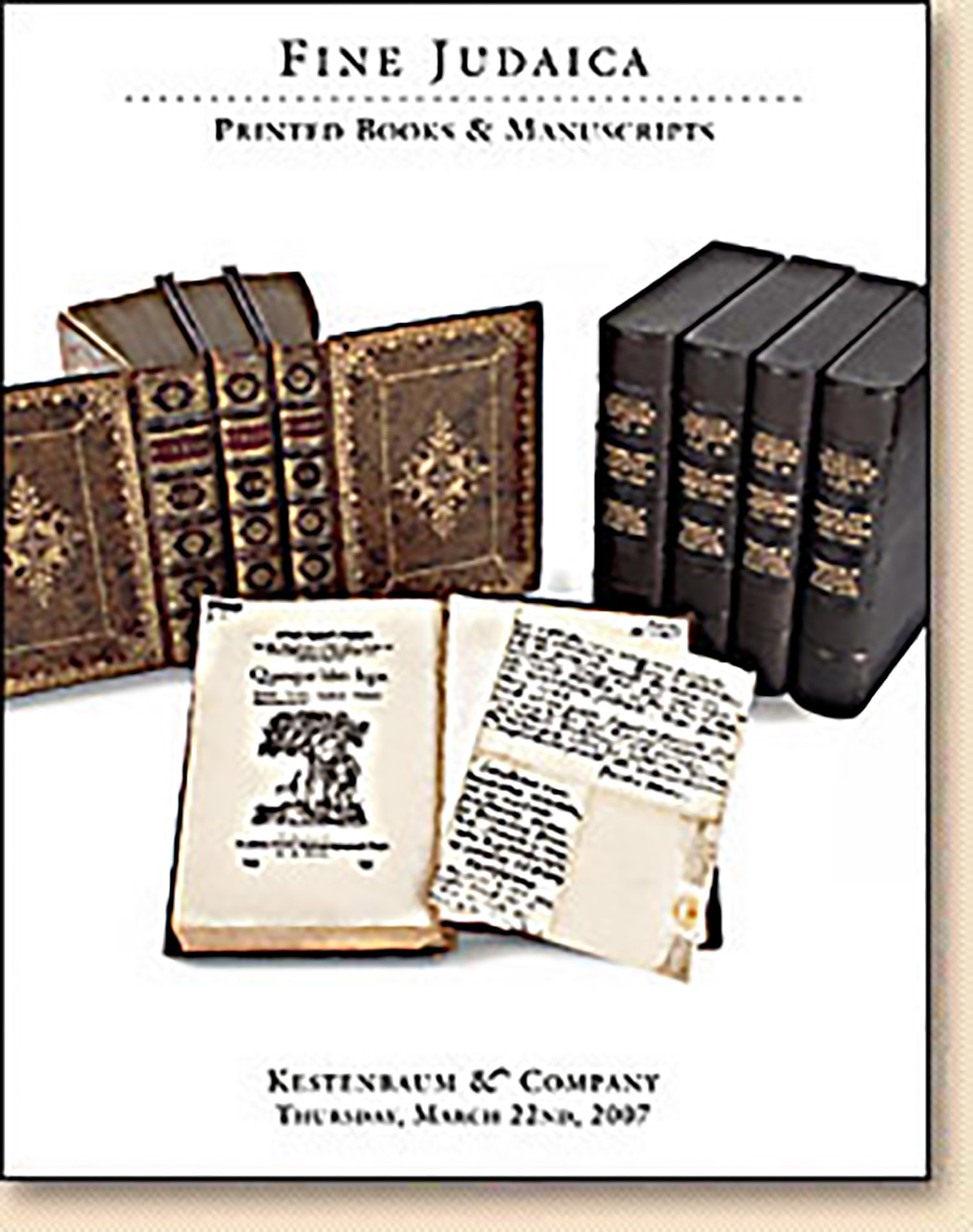Hakohen, Benjamin Beinish ben Judah Leib. Amtachath Binyamin (Seguloth, Refu’oth u-Tefiloth/Charms, Cures, and Prayers)

AUCTION 36 |
Thursday, March 22nd,
2007 at 1:00
Fine Judaica: Printed Books & Manuscripts
Lot 133
(KABBALAH)
Hakohen, Benjamin Beinish ben Judah Leib. Amtachath Binyamin (Seguloth, Refu’oth u-Tefiloth/Charms, Cures, and Prayers)
Wilhermsdorf: Hirsch ben Hayim of Fürth 1717
Est: $500 - $700
PRICE REALIZED $500
The author, Benjamin Beinish Hakohen of Krotoschin, acquired a reputation as a Ba’al-Shem, a wonder-worker. In fact, an earlier published work by the same author is entitled Shem Tov Katan (Sulzbach, 1706). This work is renowned for its homilies and kabbalistic interpretations. Among the many topics discussed are kabbalistic meditations for bathing, lighting candles and marital relations on the Sabbath.
Practical Kabbalah, which was for the most part, virtuously motivated, is preoccupied with the manipulation of the spherical powers to affect the physical, not the spiritual world. Such magical operations are not considered impossible in the Kabbalah. Indeed, they are not categorically forbidden, although numerous Kabbalistic writings stress that only the most perfectly saintly individuals are permitted to perform them, and even then, never for their private advantage, but only in times of emergency and public need. Jewish “white” magic worked largely through the manipulation of the sacred, esoteric names of God and the angels. Those who knew its secrets, were known as “ba’alei shem.”
The book bears the haskamoth (encomia) of R. Meir Eisenstadt of Prossnitz, author of Responsa Panim Me’iroth, and of R. Naphtali Katz of Posen. The latter attests that R. Benjamin Beinish dwelled for some time in his abode, at which time the rabbi of Posen had opportunity to observe his lofty ways and expertise in Kabbalah. As R. Naphtali Katz himself was renowned as a kabbalist and wonder-worker, this constitutes the testimony of an expert. See Immanuel Etkes, Ba’al Hashem: The Besht—Magic, Mysticism, Leadership (2000), pp. 35-41
